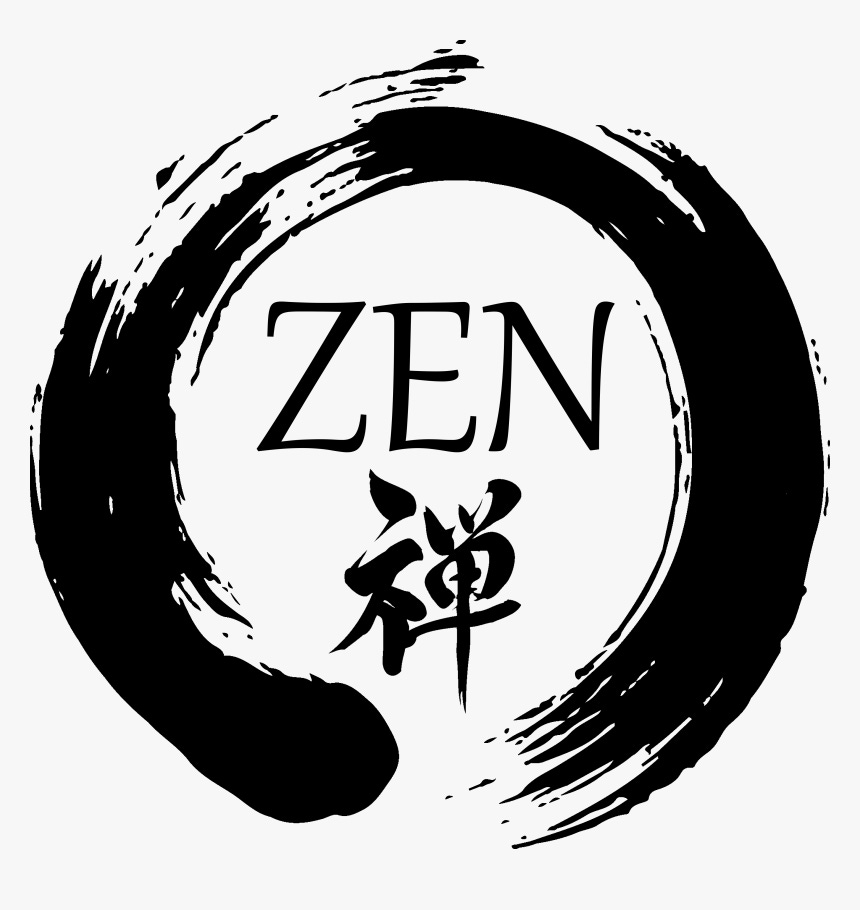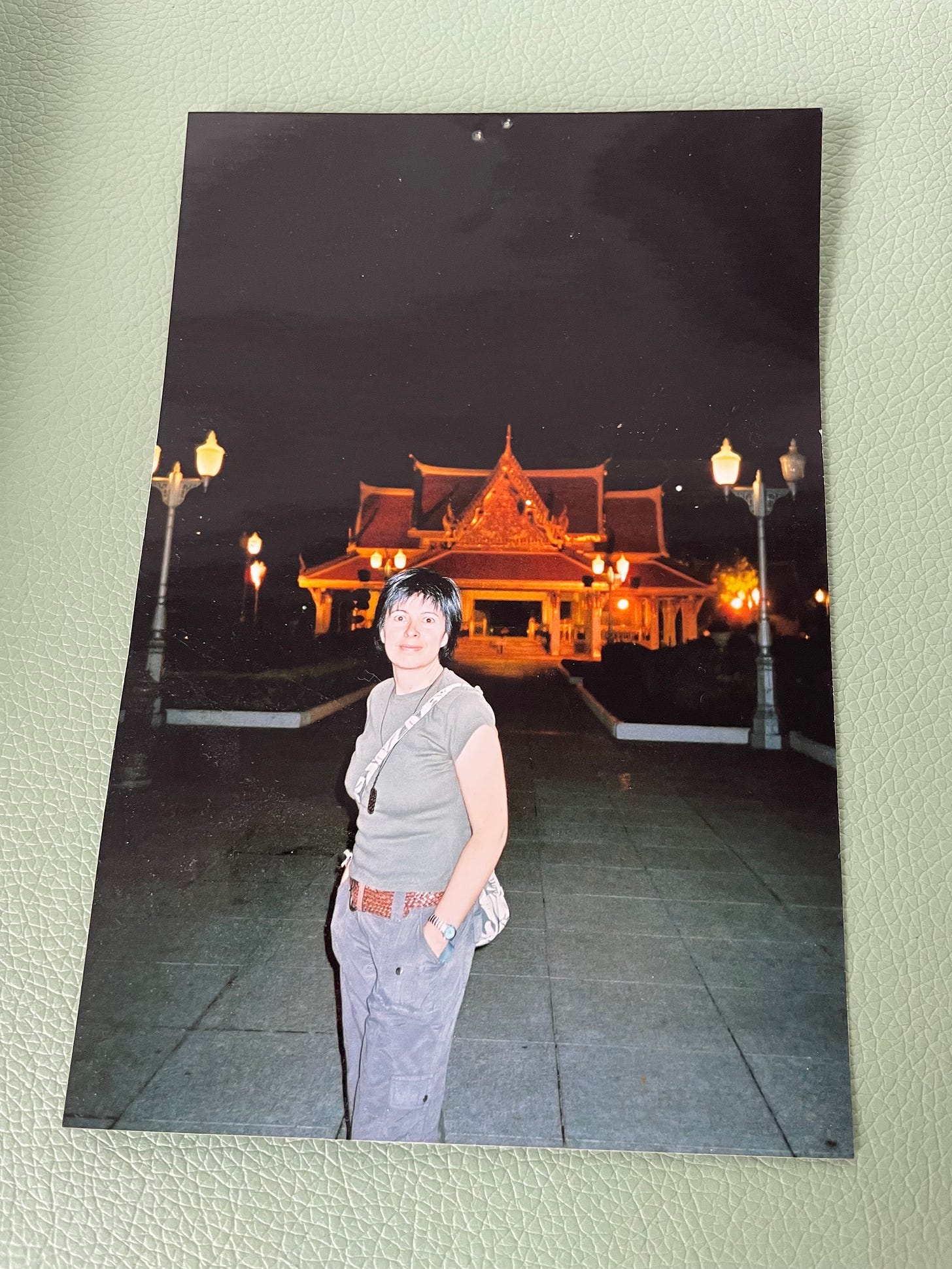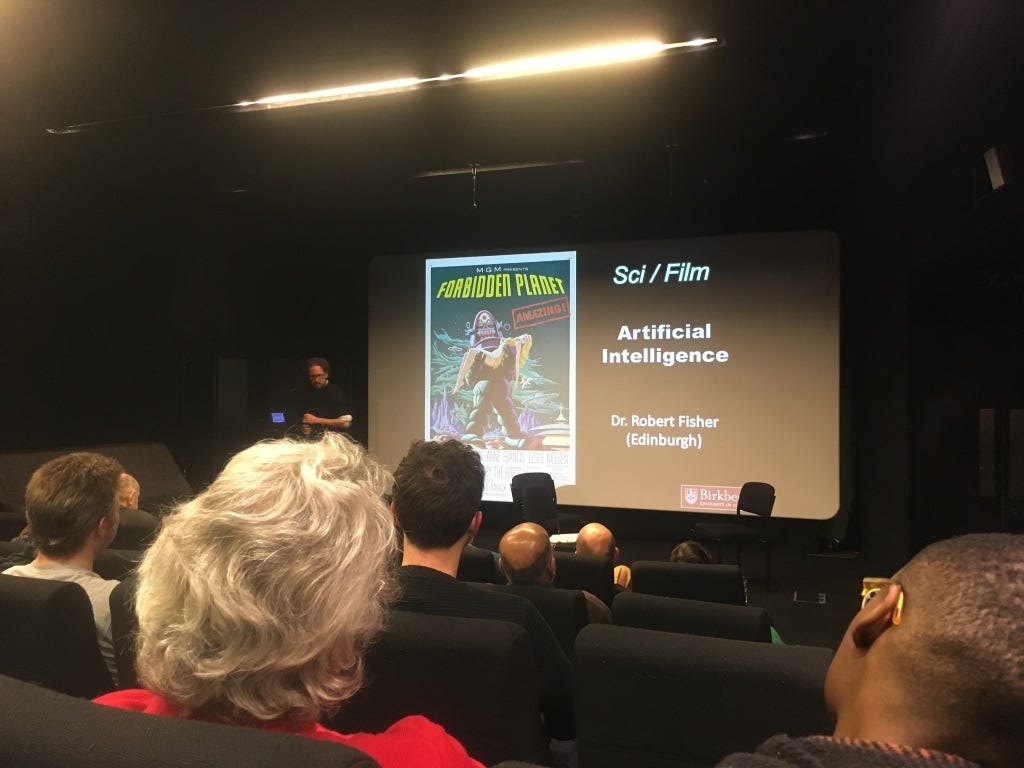om asato mā - sad gamaya - tamaso mā jyotir gamaya mṛtyor mā amṛtaṁ gamaya
oṁ śāntiḥ śāntiḥ śāntiḥ ~ Bṛhadāraṇyaka Upaniṣad
Lead me from the unreal to the real, from darkness to light, from death to immortality.
Will the light of knowledge and Intelligence save or destroy us in the age of AI? And can we keep ourselves on the noble/ethical path?
This post and podcast continues an interesting dialogue l first started earlier in 2024 with a trilogy of posts, exploring the relationship between eastern philosophies including Zen and AI. The Aim simply was to illuminate and enhance our understandings of how by drawing on eastern and western science alongside technology we can re-cultivate an appreciation of being human and how to live harmoniously in an overstimulated world. Provoking us to rethink about our connection and obsession with technology as well as the future of life and work.
You can sample one of posts from the series below:
Why Your Presence Matters in an Algorithmic Society
Back in 2019 (just before Covid), l was asked to give a talk looking at human behaviours around knowledge and intelligence in our ai and techie world, based upon my work in this area. Part of this discussion, was to explore how some eastern philosophies may offer lessons and be relative to how we are behaving around and constructing technology and Ai?
So does how we behave relate to our self knowledge and intelligence and how we choose to navigate these important discussions?
Well let’s start by how do you define Knowledge? Most recognise knowledge as simply an acquisition and acceptance of facts, while intelligence points to the implementation of the facts wisely.
Knowledge can be the same in different individuals, especially if impacted under the same environment. Intelligence and intuition on the other hand, are unique to individuals. Furthermore, knowledge, intelligence, and intuition are precious human gifts given to us to experience and navigate the world in a linear and nonlinear way.
Therefore, can using the light of knowledge and intelligence from an eastern perspective help keep us on the noble/ethical path in the age of Ai?
The verse above taken from the Bṛhadāraṇyaka Upaniṣad invites us to question and reflect upon how we perceive reality by prompting us to contemplate what is unreal? and what is real?
Perhaps, by applying this verse in our AI world could lead us to understand our obsession with engineering humanity? Providing us with possible insights into why humanity may want to consider merging with technology? For example with Machine/Cyborg technology and ai via computer mainframes and interfaces (Singularity) to become immortal but with a non-self.
Human vs Machine Behaviour
After attending various forums and conferences around the concern of transformative technology. It appears one directionality and intention for this technology is to extend life in another dimension where some of our human qualities won't transfer.
However, if we look at human behaviour one of our main purposes in life is to seek and find happiness (which is strongly influenced by the enjoyment of the senses). If this is indeed true? Is our current and growing relationship with technology chipping away at our senses along with our emotional and social intelligence?
ZEN
Taken outside one of the four temples at Wat Pho a Buddhist temple complex in Bangkok, Thailand, with a 46 m long reclining Buddha and a large collection of Buddha images. It is one of the oldest and most important temples in Thailand, and a centre of education and traditional Thai medicine, where l studied for a month.
Zen, the concept of Non-Self and its resonance to Ai
Image taken from Kyodo News via Getty Images
In Zen Buddhism (slightly different from certain yoga philosophies which talk about the layers of the self). Zen follows the concept of a “no-self” referred to as (anatta) which forms a central pillar to the practices. Whilst yoga and meditation also asks us to sit with ourselves. Zen facilitates the same line of enquiry but from a slightly different perspective, using zazen (meditation) and satori (introspection) to go beyond who we think and what we are and join with all that is. Cultivating a state of “no-self”reflecting a deeper intelligence.
Zen and Eastern practices and AI - the possible learnings and conclusions
Currently, AI operates without any form of self-awareness and emotional consciousness, will that change one day? Perhaps but it lacks the ability for introspection, in other words to go beyond the ego and find that connection to the all which us humans have the capacity to do.
That being said there are two distinct differences in terms of this concept of '“no-self”. If we apply this concept to technology, namely AI we can relate it to the technological specification in design and programming, where as in Zen it represents an profound turning point spiritually.
Human behaviour
Examining human history, we can see recurring patterns of behaviour; greed, war, and pollution of the environment can be traced to a fundamental root cause - desire and the un connection to all. Perhaps then by looking at the history and impact of human behaviour on society as we move forward. We can ensure that we don't repeat the same mistakes as we enter into this new dimension and human evolution.
Enter AI Ethics……
Neuroscientist and Philosopher Sam Harris in 2016 gave a Ted Talk on the future of life concerning some of these topics. Moreover, going on to say that many of us suffer from a failure of intuition and awareness which helps us detect a certain kind of danger.
One of the key issues that worried him the most was about the development of AI and how we seem unable to marshal an appropriate emotional response to the dangers that lie ahead. So why should we all be concerned about this? Well, because it ultimately reflects our emotional and social intelligence in how we perceive and respond to the world around us.
I first got into the Ethics around AI from attending a fascinating debate at University of Birkbeck, where l was studying. Bob Fisher is the head of Computer Vision and Centre of Robotics at Edinburgh University, and at the time was the advisory chair for the UK Commons Committee on AI Ethics for the UK. Inspired by his concern and vision l then went on to study aspects of ethics in the digital and AI arena.
How to live mindfully in our AI world?
Life is a difficult journey of up’s and down’s. In the technological era it presents us with even new challenges, challenges where we question our purpose as well as our existence. Therefore, it’s no surprise that we can lose our way. But scriptures, philosophies and practices from the Upaniṣads, Bhagavad Gītā, as well as the Zen can serve us as a worthy roadmap. Keeping us on the noble path towards freedom, peace, and happiness and more importantly a greater connection to all which fundamentally is for what we are all searching for especially in the age of AI.
In my next podcast, l’ll be exploring another perspective of THE SELF and ‘Understanding the self’ this time from a psychological scientific perspective, so l hope you’ll join me then.
Until next time.
















Share this post